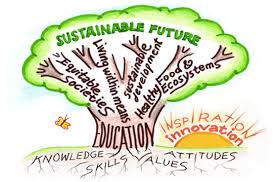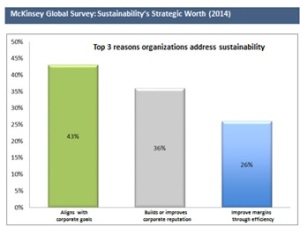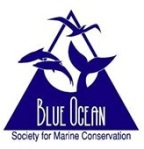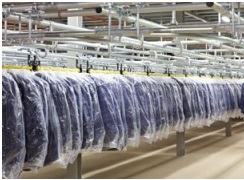– by Ed Weisberg
In February, GXT Green participated in a full day seminar in Massachusetts organized by MassGreen.org. The purpose of the session was to bring together members of communities that have, or are interested in, instituting plastic bag bans or plastic food packaging bans. The goal was to educate them on the issues and help them address plastic litter in a productive way.
 Consideration of Bag Bans is a great rallying point to bring together concerned citizens who want to do something constructive to improve our environment. Without clear, unbiased information on the true issues, however, sometimes a movement such as this can be driven more by emotions than facts, and create more confusion than solutions. Fortunately, as we have seen in many discussions around the issue of plastic bag pollution and bag bans, once people are educated, they move beyond regulations that may create a problem for consumers and retailers, and begin to focus on solutions to the true issue, plastic bag pollution. Ideally, people move towards truly solving the plastic bag issue in a meaningful way, leaving behind those who just want to stop progress by creating a universal ban.
Consideration of Bag Bans is a great rallying point to bring together concerned citizens who want to do something constructive to improve our environment. Without clear, unbiased information on the true issues, however, sometimes a movement such as this can be driven more by emotions than facts, and create more confusion than solutions. Fortunately, as we have seen in many discussions around the issue of plastic bag pollution and bag bans, once people are educated, they move beyond regulations that may create a problem for consumers and retailers, and begin to focus on solutions to the true issue, plastic bag pollution. Ideally, people move towards truly solving the plastic bag issue in a meaningful way, leaving behind those who just want to stop progress by creating a universal ban.
We were pleased to see that there were a good number of people at this event who are actually trying to solve the plastic bag pollution issue.

Towns Represented
Speakers included Regan Milani, of the Boston Aquarium, who talked about how entanglement from pollution and derelict fishing gear is major concerns for fish, and Bob Cappadona VP of Recycling from Casella Waste, who explained that their largest challenge is that recycled plastic bags need to be separated from other plastics, or they gum up their machines. Christine Beling from the EPA spoke about the WRAP program (http://www.plasticfilmrecycling.org) which is a nationwide initiative to make it easier to recycle plastic bags and film, and Mark Myles, from the Toxic Use Reduction Institute spoke on their efforts to reduce toxins in our environment, (www.Turi.org).
One of the fundamental problems with simply banning all carry bags is that people still need a way to get their groceries home. There is a push for reusable bags, but unfortunately many of those are made from non-woven plastics or other materials that have a large carbon footprint, may not be recyclable because they are a mixture of materials, and can harbor bacteria if not washed frequently. Thus, reusable bags often create more problems than they solve. Citizens, civic leaders, and retailers are recognizing that offering photodegradable bags, such as ECOgrade, are a viable solution for progressive communities. ECOgrade materials can be used to make single use bags or heavier reusable bags. In either case, they have a smaller carbon footprint than plastic, can be recycled, and will degrade to a non-toxic residue if littered or lost.
At GXT Green we do not take a stand on whether a community should institute legislation to force people to stop using plastic bags. Rather, we simple want to educate communities on the ECOgrade photodegradable alternative to plastic bags. We relish the opportunity to attend events like the one put on by MassGreen.org to answer questions and help reach our mutual goal: To eliminate plastic litter. Please let us know if you hear of other opportunities such as this for GXT Green to provide information and offer a viable alternative to plastic carry bags.
For more information, the various presentations are available here:
- Bob Cappadona, Vice President of Casella Recycling, presented on the economic impact of non-recyclables such as thin bags, polystyrene, textiles and propane tanks. Improperly disposed, they cause significant damage at materials recovery facilities (MRFs).Christine Beling of the US Environmental Protection Agency’s Office of Environmental Stewardship offered facts, figures and resources about solid waste and recycling in the Commonwealth.
- Regan Milani, Conservation Programs Manager at the New England Aquarium, discussed the destructive impact of debris on marine animals and the ocean environment. Her presentation closed with a chart on marine decomposition rates prepared by Jeffrey Brodeur of Woods Hole Sea Grant.
- Mark Myles, training program manager at the Toxics Use Reduction Institute spoke about the toxicology of plastics, focusing on styrene, and pointing people towards resources for further information
Edward Weisberg is Senior Vice President of Marketing and Business Development, GXT Green, Inc.

 important pledge regarding climate change. At this conference, representatives from hundreds of countries, including the largest industrial
important pledge regarding climate change. At this conference, representatives from hundreds of countries, including the largest industrial the goals of the agreement will be even more challenging. As with any major change the best way to “eat an elephant” is one small piece at a time.
the goals of the agreement will be even more challenging. As with any major change the best way to “eat an elephant” is one small piece at a time. that can replace virtually any plastic materials. Depending on the desired product, it can be modified to be photodegradable in sunlight (such as for making carryout bags), or not (for items such as car bumpers). Depending on the requirement, ECOgrade resin can stand on its own or be complexed with polymers in specific percentages to meet performance requirements. Regardless of what is made with the ECOgrade, however, one thing is for certain: It will reduce our use of fossil fuels, lower greenhouse gas emissions, and cut down on energy use in manufacturing. In the case of disposable items, it is designed to photodegrade if littered or lost, eliminating the plastic pollution issue that is damaging our oceans and landscapes, but even when modified for non-degradable applications, it will reduce our impact on the planet.
that can replace virtually any plastic materials. Depending on the desired product, it can be modified to be photodegradable in sunlight (such as for making carryout bags), or not (for items such as car bumpers). Depending on the requirement, ECOgrade resin can stand on its own or be complexed with polymers in specific percentages to meet performance requirements. Regardless of what is made with the ECOgrade, however, one thing is for certain: It will reduce our use of fossil fuels, lower greenhouse gas emissions, and cut down on energy use in manufacturing. In the case of disposable items, it is designed to photodegrade if littered or lost, eliminating the plastic pollution issue that is damaging our oceans and landscapes, but even when modified for non-degradable applications, it will reduce our impact on the planet. Europe, they perfected the design of headlights that steered with the wheels on the Citroën DS. The high-beam headlamp swiveled by up to 80° as the driver steered, pointing the beam along the driver’s intended path. The low-beam headlamps were self-leveling to react to pitching caused by acceleration and braking. However, US laws, which had been written to insure that headlights met certain minimum standards, precluded the import of this advancement, and thus the steerable headlights were banned. Even today these laws are still standing, and BMW and Audi, who have innovative adaptive lighting systems, are wrestling to reduce their effectiveness to fit into the US laws, while still providing safety benefits to their customers. According to the
Europe, they perfected the design of headlights that steered with the wheels on the Citroën DS. The high-beam headlamp swiveled by up to 80° as the driver steered, pointing the beam along the driver’s intended path. The low-beam headlamps were self-leveling to react to pitching caused by acceleration and braking. However, US laws, which had been written to insure that headlights met certain minimum standards, precluded the import of this advancement, and thus the steerable headlights were banned. Even today these laws are still standing, and BMW and Audi, who have innovative adaptive lighting systems, are wrestling to reduce their effectiveness to fit into the US laws, while still providing safety benefits to their customers. According to the 































